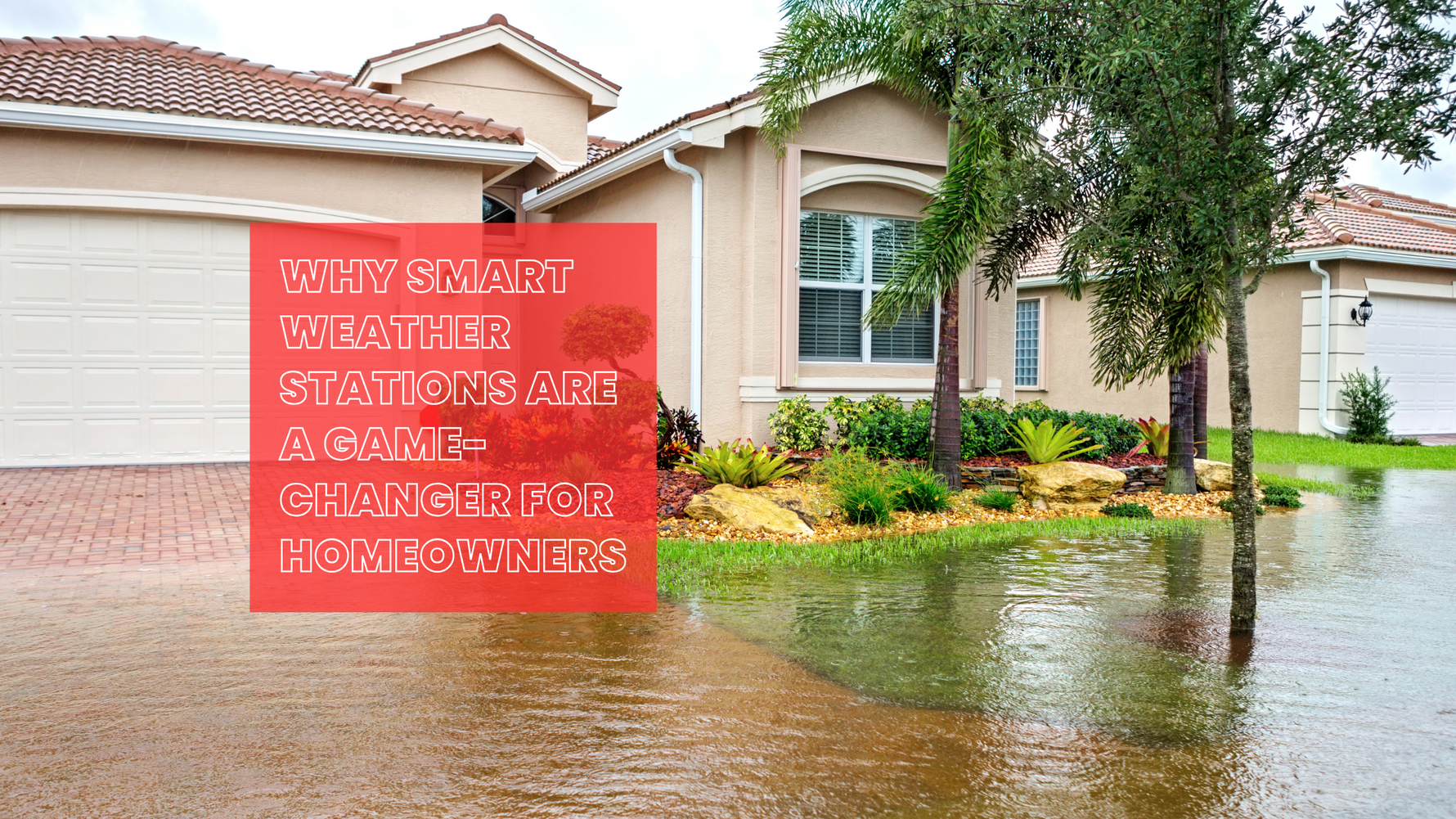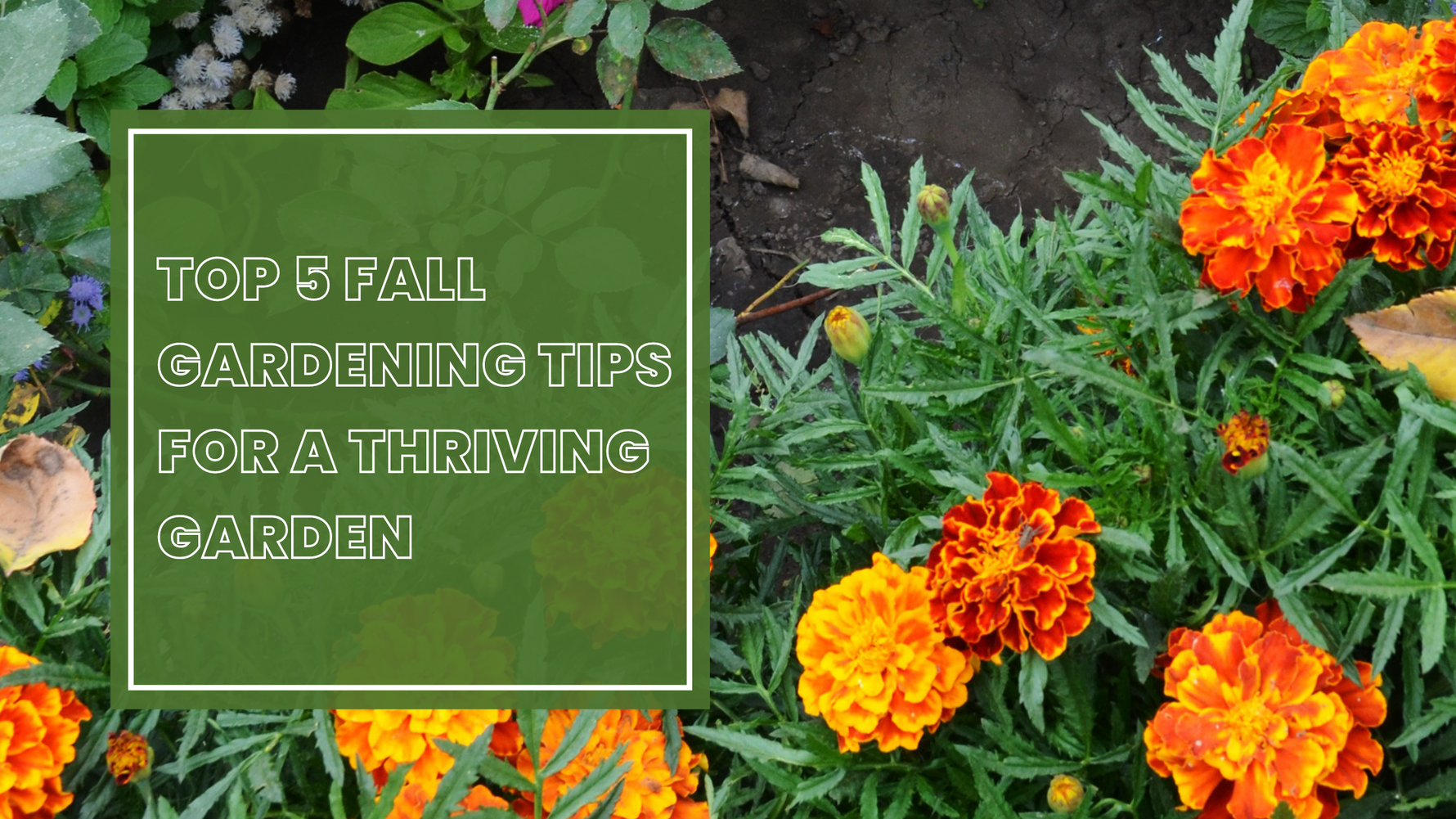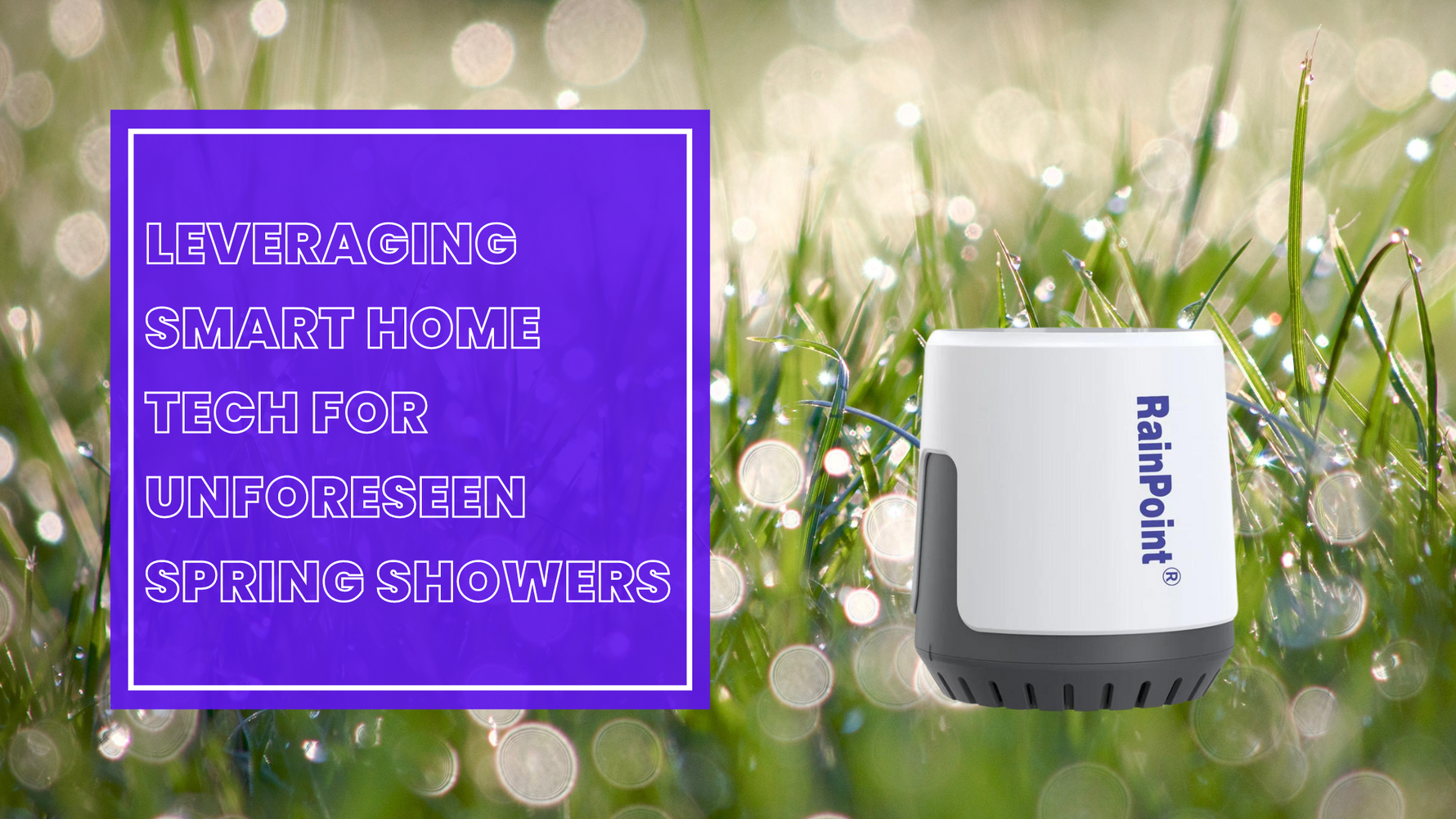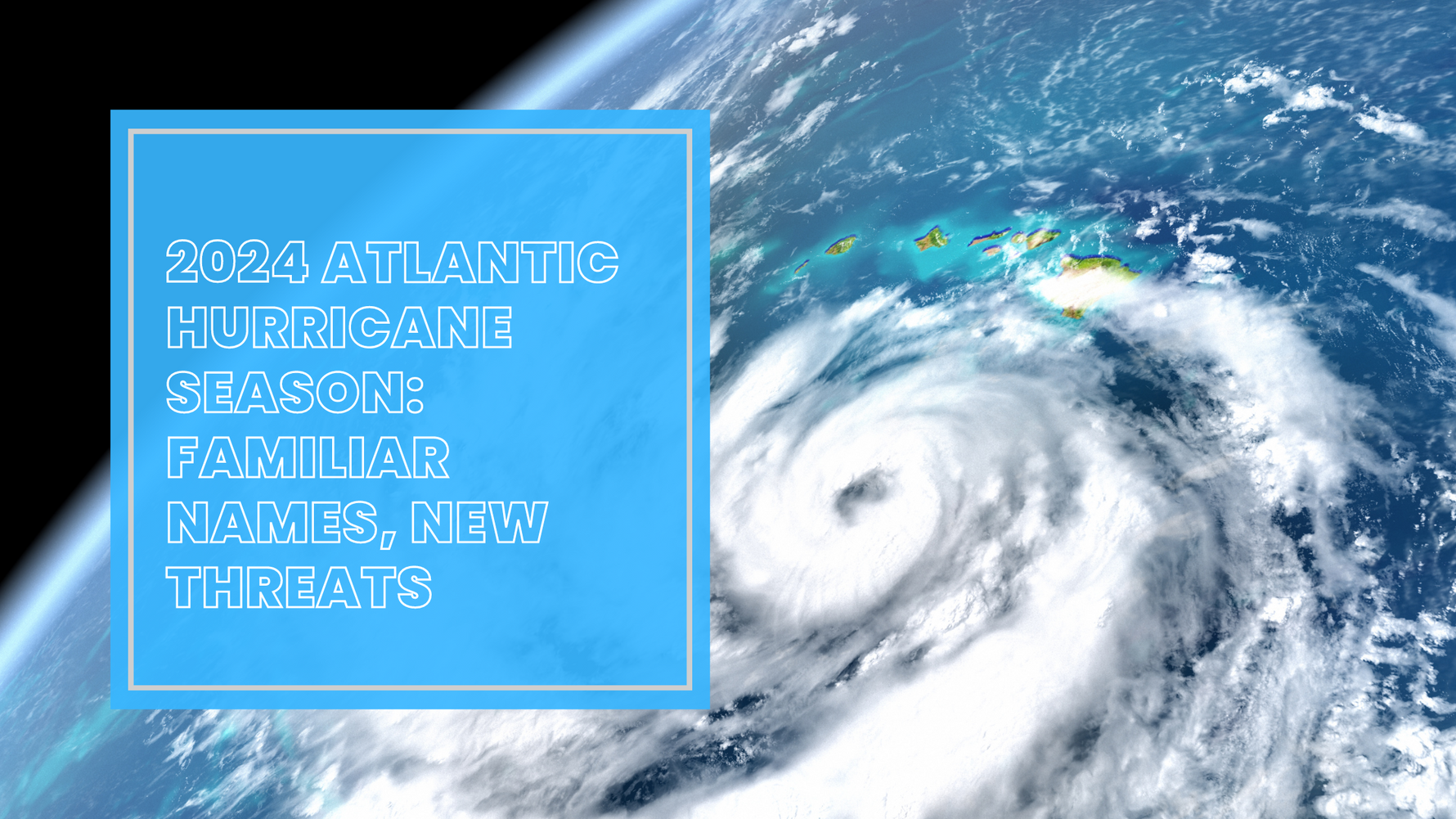News

News
How Can a Smart Weather Station Improve Your Home Life?
by Leen G. on Jul 06 2025
Weather affects nearly everything in our daily lives — from planning outdoor activities to protecting our homes from sudden storms. Most people rely on general forecasts from apps or TV, which often only give broad information that may not reflect conditions in your exact location. That’s why smart weather stations are becoming a popular solution for homeowners who want accurate, real-time data.
What Is a Smart Weather Station?
A smart weather station is a device that tracks various weather conditions in real time, such as temperature, humidity, rainfall, wind speed, and air pressure. Unlike standard weather apps that rely on distant stations, these systems monitor the exact conditions at your home.
The BALDR Wi-Fi Weather Station is a perfect example of this technology. It provides precise local measurements and sends data directly to your display or mobile device. By having real-time access to accurate weather information, you can make smarter decisions for your home, garden, and family activities.
Why Smart Weather Stations Matter
Knowing the local weather can save you time, money, and stress. Accurate information helps you:
Protect your property from frost, heat, or heavy rain
Plan outdoor activities confidently
Adjust home heating, cooling, and irrigation systems efficiently
Monitor indoor air quality and humidity for better health
With traditional forecasts, these tasks are often guesswork. Smart weather stations allow homeowners to respond proactively rather than reactively.
Key Benefits of Smart Weather Monitoring
Precise Local Data: Get accurate readings right from your property instead of relying on general forecasts.
Real-Time Updates: Check current conditions anytime, which helps you make immediate decisions.
Remote Access: Monitor your home’s weather from your phone, no matter where you are.
Energy Efficiency: Optimize heating, cooling, and watering schedules based on actual conditions.
Safety and Preparedness: Receive early warnings for extreme weather events, protecting your family and home.
How It Works
A smart weather station collects data from sensors placed inside and outside your home. Outdoor sensors measure temperature, humidity, wind, and rainfall, then send the information wirelessly to the main hub. You can view these readings on a display, app, or even connect them to other smart devices to automate certain actions — for example, turning off sprinklers before it rains.
Installation is simple and user-friendly, so even beginners can benefit from advanced weather monitoring. Once set up, the system continuously tracks conditions, giving you a complete picture of your local environment.
Why It’s Worth the Investment
Having a smart weather station gives homeowners control, convenience, and peace of mind. By knowing what the weather is actually doing, you can make better daily decisions, reduce energy costs, and protect your property from damage.
Pairing the main system with a BALDR Outdoor Remote Sensor enhances its capabilities. This sensor provides accurate outdoor data in real time, allowing you to track conditions beyond the indoors. Together, these tools make home weather monitoring precise, reliable, and effortless.
Conclusion
Smart weather stations are more than just gadgets — they are practical tools for modern homeowners. With accurate local data and remote monitoring, you gain control over your environment, save resources, and reduce risks. Using devices like the BALDR Wi-Fi Weather Station with an outdoor sensor ensures you stay informed, prepared, and one step ahead of the weather.

News
What Are the Secrets to a Healthy Garden This Fall?
by Leen G. on Oct 01 2024
Fall is an important season for gardeners. Cooler temperatures and shorter days mean your plants need extra care to stay healthy. Without proper attention, flowers, vegetables, and leaves can suffer. By following a few simple tips, you can keep your garden thriving during autumn.
1. Keep Soil Moisture Balanced
Even though plants need less water in fall, they still require consistent hydration. Too little water can stress them, while too much can damage roots. Checking soil regularly helps ensure each plant gets just what it needs.
2. Use Mulch Around Plants
Mulching is an easy way to protect your plants during cooler months. A layer of mulch acts like a blanket for roots, keeping them warm and retaining moisture in the soil. Mulch also reduces weeds and adds nutrients to the soil as it breaks down. Organic options like leaves, straw, or bark work best.
3. Prune and Clean Up Your Garden
Fall is the perfect time to trim dead branches and remove fallen leaves. Pruning encourages healthy growth and improves air circulation, reducing the risk of pests or disease. Cleaning up debris also prevents insects and fungi from overwintering in your garden.
4. Adjust Watering and Track Usage
Even in cooler months, watering is important. Many gardeners forget to change schedules for fall, which can waste water or stress plants. Using a RAINPOINT Digital Garden Hose Water Flow Meter helps you measure how much water is going to your garden. By monitoring flow, you can water efficiently and make sure every plant gets the right amount.
5. Plant Cool-Season Crops
Fall is a great time to plant vegetables, bulbs, and perennials that thrive in cooler weather. Crops like lettuce, spinach, kale, and garlic do well now. Preparing the soil and adding compost or nutrients helps new plants grow strong and ready for spring.
Tips
Protect Delicate Plants: Move potted plants indoors or cover sensitive plants on cold nights.
Check Soil Health: Test your soil and add compost or fertilizer if needed.
Maintain Tools: Clean and sharpen garden tools before storing them for winter.
Final Thoughts
Fall gardening is about preparation, protection, and paying attention to your plants’ needs. By monitoring moisture, mulching, pruning, adjusting watering, and planting the right crops, you can keep your garden healthy all season.
Using tools like the RainPoint Wi-Fi Soil Moisture Meter makes it even easier. With accurate readings, you can water efficiently, avoid problems, and ensure your garden stays strong and thriving through autumn and into spring.

News
Celebrate the 4th of July—Rain or Shine!
by Leen G. on Jun 30 2024
It’s almost time for sparklers, sizzling grills, and all the red, white, and blue your backyard can handle. But before the festivities kick off, there's one key player you don’t want to overlook: the weather.
Whether it’s blazing sunshine or a surprise summer shower, a little prep goes a long way toward making your 4th of July celebration smooth, safe, and fun for everyone.
Step One: Check the Forecast (Your Party Could Depend on It!)
Before you hang the flags and light the grill, take a moment to check the weather. Knowing what to expect can help you plan your food, setup, and timing.
Here’s how to prep based on the forecast:
Sunny Skies
Slather on the sunscreen and set up a shady spot.
Hydration is key—stock up on cold drinks.
Pop-up showers? Umbrellas or tents can save the day!
Hot & Humid
Choose light, breathable clothing.
Plan games or meals near water—think sprinklers or even a kiddie pool.
Start early! Morning and late evening cookouts beat the midday heat.
🌧️ Rainy Day
Rain doesn’t mean cancel—just pivot indoors.
Set up a patriotic movie marathon, potluck, or board game bonanza.
A covered patio or a canopy can keep the party outdoors but dry.
Fireworks Fun (The Safe Way!)
Let’s be honest—fireworks are a 4th of July staple. Whether you’re heading to a local show or watching from your backyard, a little planning goes a long way:
Double-check the schedule and location of public shows.
Pack a blanket, snacks, and bug spray—your future self will thank you.
Be mindful of local laws—when in doubt, leave the fireworks to the pros.
4th of July Party Planning Checklist
Want to celebrate stress-free? Here’s how to keep things smooth:
✅ Plan your menu early. Burgers, dogs, fruit skewers, and simple sides are always a hit.✅ Delegate duties—get everyone involved from setup to cleanup.✅ Make a playlist that fits the vibe—think summer hits or classic Americana.✅ Have a backup plan just in case the weather doesn’t cooperate. Indoors can be just as festive with the right attitude (and snacks!).
Weather-Ready with Smart Tools
Want to stay one step ahead of the weather all summer long?
🛰️ A home weather station from Baldr Electronic helps you monitor temperature, humidity, and sudden weather changes in real time. It’s perfect for planning events, outdoor gardening, or just knowing when to move the party indoors.
Red, White, and Ready to Celebrate!
The secret to a perfect Independence Day? A little flexibility, a lot of planning, and keeping an eye on the sky. Whether the sun’s blazing or the clouds roll in, your celebration can still be one for the books.
Now fire up that grill, round up your favorite people, and make this 4th of July unforgettable—whatever the weather!
Shop smart weather tools now and be ready for all your summer adventures.
View Synonyms and Definitions

News
Leveraging Smart Home Tech for Unforeseen Spring Showers
by BALDR Electronic on Mar 04 2024
As spring unfolds, so does the unpredictability of the weather, often bringing unexpected rain showers that catch us off guard. However, with the right smart home technology in place, you can seamlessly navigate these changes and stay one step ahead of Mother Nature. In this blog, we'll explore how to utilize smart devices like weather stations, rain gauges, thermometers, and irrigation systems to prepare for and manage unexpected spring rain.
Smart Weather Station: A smart weather station is your first line of defense against unpredictable weather patterns. With real-time updates on temperature, humidity, and atmospheric pressure, you'll be equipped to anticipate incoming rain showers and adjust your plans accordingly. Set up alerts to notify you of sudden changes in weather conditions, allowing you to take proactive measures to protect your home and outdoor activities.
Rain Gauge: Integrate a smart rain gauge into your smart home setup to accurately measure rainfall in your area. By monitoring rainfall levels in real-time, you can determine if your garden or lawn requires additional watering or if it's best to delay outdoor activities. Pair your rain gauge with your smart irrigation system for precise watering schedules based on actual rainfall data, conserving water and ensuring optimal plant health.
Thermometer: A smart thermometer provides valuable insights into outdoor temperature variations, helping you gauge the severity of impending rain showers. Combined with data from your smart weather station, you'll have a comprehensive understanding of current weather conditions and can adjust your home's climate control settings accordingly. Use temperature alerts to receive notifications when temperatures drop, signaling potential frost or icy conditions.
Smart Irrigation System: Optimize your water usage and protect your garden from unexpected rain showers with a smart irrigation system. Programmable and weather-responsive, these systems adjust watering schedules based on real-time weather data, ensuring your plants receive the right amount of water at the right time. Utilize moisture sensors to measure soil moisture levels and prevent overwatering, saving water and promoting healthy plant growth.
Don't let unexpected spring rain showers catch you off guard. By leveraging smart home technology like weather stations, rain gauges, thermometers, and irrigation systems, you can proactively prepare for and manage changes in weather conditions. Stay informed, conserve resources, and protect your home and garden with the power of smart technology this spring.
Prepare your smart home for the unexpected and embrace the convenience and peace of mind that come with staying connected to your environment, rain or shine.
Shop Smart Devices

News
2024 Atlantic Hurricane Season: Familiar Names, New Threats
by BALDR Electronic on Feb 22 2024
As we gear up for the 2024 Atlantic hurricane season, it's essential to familiarize ourselves with the list of names that may become household names in the coming months. This year's roster includes a mix of familiar favorites and two newcomers, Francine and Milton. Let's take a closer look at the complete lineup:
With the addition of Francine and Milton, there's a fresh energy to this year's list. These names replace 2018's Florence and Michael, respectively, and stand ready to potentially leave their mark on the season.
Here's a glimpse of notable names from the 2024 list:
Alberto: Known for heavy rain and flooding in the Southeast in recent years.
Beryl: Nearly escalated to hurricane status when it struck northern Florida and southern Georgia in 2012.
Chris: Recorded as the northernmost June Atlantic tropical cyclone to become a hurricane, bringing impacts to regions as far north as Philadelphia in 2012.
Debby: Brought significant rainfall and storm surge flooding to northern Florida and the Tampa-St. Petersburg metro area in 2012.
Gordon: Caused devastating flooding and mudslides in Haiti in 1994, resulting in over a thousand fatalities.
Isaac: Slogged through the northern Gulf Coast in 2012, inflicting billions of dollars in damage and causing significant surge flooding.
Leslie: Meandered the North Atlantic in 2018, impacting the Madeira Islands and Europe as Storm Leslie, causing damage in Portugal, Spain, and France.
Nadine: Known for its meandering path and prolonged impact on the Azores in 2012.
But what can we expect from the 2024 Atlantic hurricane season? While it's impossible to predict with certainty, it's always wise to be prepared. Here are some tips to ensure you're ready for whatever comes our way:
Stay Informed: Keep an eye on weather forecasts and updates from trusted sources. Pay attention to any warnings or advisories issued by meteorological agencies.
Have a Plan: Develop a hurricane preparedness plan for you and your family. Know your evacuation routes, stock up on essentials, and have a communication plan in place.
Secure Your Home: Take steps to protect your property from potential damage. Trim trees, secure outdoor furniture, and reinforce windows and doors.
Emergency Kit: Assemble an emergency kit with supplies such as water, non-perishable food, medications, flashlights, and batteries. Don't forget about your pets' needs as well.
Stay Connected: Keep lines of communication open with family, friends, and neighbors. Check on elderly or vulnerable members of your community to ensure they're safe.
As we prepare for the 2024 Atlantic hurricane season, let's keep these tips in mind and stay vigilant. By staying informed, having a plan, and looking out for one another, we can weather any storm that comes our way.
Stay safe, and let's hope for a calm and uneventful season ahead!
Additional Resources:
National Hurricane Center (NHC): https://www.nhc.noaa.gov/
Ready.gov: https://www.ready.gov/hurricanes
Local Emergency Management Agency
National Weather Service (NWS)
American Red Cross

